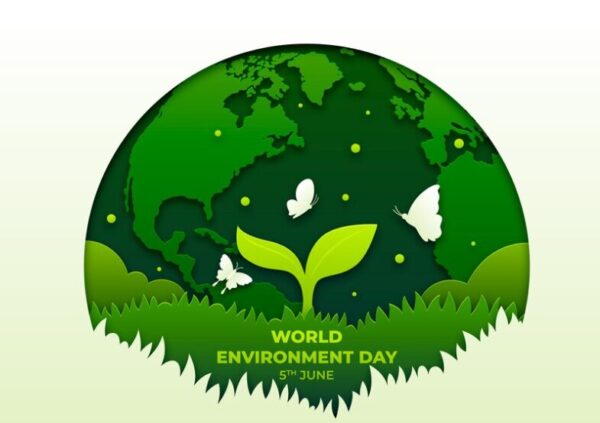World Environment Day
When is the world environment day
World Environment Day is an annual event celebrated globally on June 5th. It serves as a reminder of the importance of protecting our environment and promoting sustainable practices. In this article, I will explore the significance of World Environment Day, discuss ways to reduce air pollution and provide practical tips on how individuals can contribute to a healthier planet.
Understanding World Environment Day:

World Environment Day was established by the United Nations General Assembly in 1972 to raise awareness and encourage action for the protection of our environment. Each year, it focuses on a specific environmental theme, highlighting pressing issues that require attention. From biodiversity conservation to climate change mitigation, World Environment Day provides an opportunity for individuals, communities, and governments to come together and take meaningful action.
Why is Air Pollution a Concern?
Air pollution poses a significant threat to public health and the environment. It is caused by various sources, including vehicle emissions, industrial activities, and burning of fossil fuels. Particulate matter, nitrogen dioxide, sulfur dioxide, and ozone are some of the harmful pollutants that can adversely affect respiratory health, contribute to climate change, and damage ecosystems.
How to Reduce Air Pollution:
Reducing air pollution requires collective efforts at both individual and societal levels. Here are some practical steps you can take to contribute to cleaner air:
Opt for Sustainable Transportation:
Choose eco-friendly modes of transportation such as walking, cycling, or using public transit whenever possible. If you need to drive, consider carpooling or investing in electric or hybrid vehicles, which produce fewer emissions.
Reduce Energy Consumption:
Conserve energy by turning off lights, appliances, and electronics when not in use. Use energy-efficient appliances and switch to renewable energy sources such as solar or wind power to decrease reliance on fossil fuels.
Support Green Initiatives:
Support businesses and organizations that prioritize environmental sustainability. Purchase products made from recycled materials, support local farmers markets, and advocate for policies that promote clean energy and reduce pollution.
Plant Trees and Green Spaces:
Trees play a crucial role in mitigating air pollution by absorbing carbon dioxide and releasing oxygen. Participate in tree planting initiatives in your community or start a garden to create green spaces that improve air quality and provide habitat for wildlife.
Practice Responsible Waste Management:
Reduce, reuse, and recycle to minimize waste and prevent pollution. Properly dispose of hazardous materials such as batteries and electronics to prevent them from leaching harmful chemicals into the environment.
Conclusion:
World Environment Day serves as a reminder of the urgent need to address environmental challenges such as air pollution. By adopting sustainable practices and advocating for cleaner air, we can protect our health, safeguard the environment, and create a brighter future for generations to come. Let us each do our part to make every day Earth Day.
In conclusion, World Environment Day is an opportunity for individuals and communities to come together and take action to protect our planet. By raising awareness, advocating for change, and implementing sustainable practices, we can make a positive impact on the environment and create a healthier world for future generations. So mark your calendars for June 5th and join the global movement for a greener, cleaner Earth.
Frequently Asked Questions:
Q. What are the main causes of air pollution?
Ans. Air pollution is primarily caused by industrial emissions, vehicle exhaust, agricultural activities, and household energy consumption.
Q. How does air pollution affect human health?
Ans. Air pollution can lead to respiratory diseases, cardiovascular problems, and even premature death, particularly among vulnerable populations such as children, the elderly, and individuals with pre-existing health conditions.
Q. What are the long-term effects of air pollution on the environment?
Ans. Air pollution can damage ecosystems, harm wildlife, and contribute to climate change by increasing greenhouse gas emissions and depleting the ozone layer.



